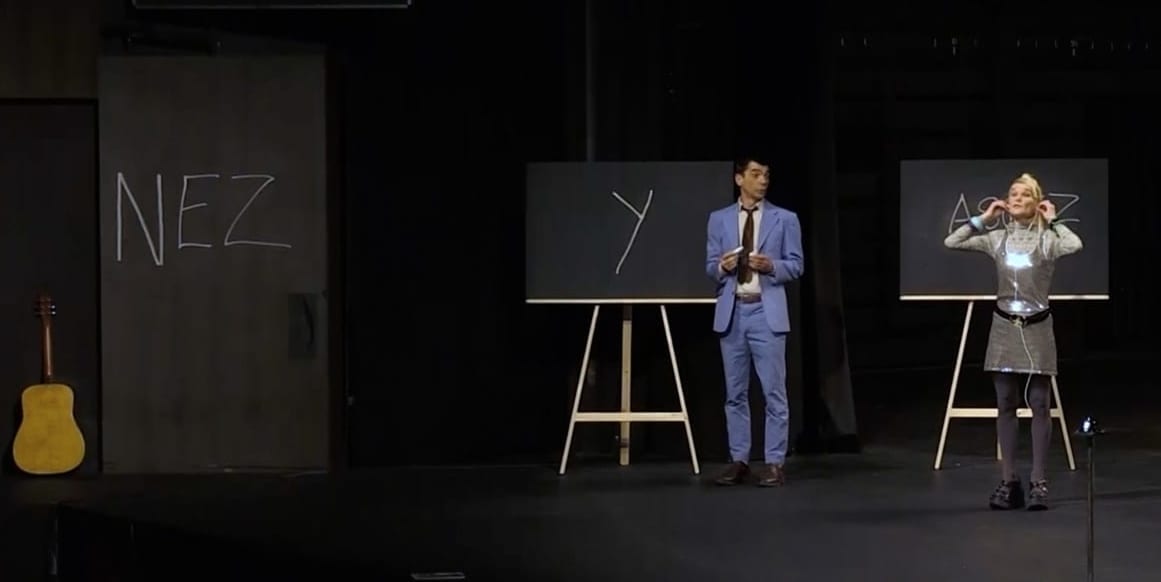‘If I say “chop” or “devour”, there is the birth of an image. Even if this image is at the same time, curiously enough, an invisible image. Everybody sees what devour means… But who devours and what, we never know…’ – GRAND MAGASIN in an interview with Catherine Blisson.
In the beautiful amphitheatre Richelieu at La Sorbonne, two French language enthusiasts share with us their fascination with ‘the miracle of the mother tongue’. What happens if you consider a word as if it were the first time that you’re hearing it? Over the “lessons”, Pascale Murtin and François Hiffler tackle each grammatical category and try to dissect the mystery of words.
In the fifth lesson, the two language archaeologists appear in quirky costumes and ask us to muse on the scintillating topic that is… nouns! They alternate saying a noun, leaving a brief silence between each of them to make the word, with its meaning and its sonority, penetrate us. Then they take out their notes, as if they are teachers, and really begin the lesson. They seek to provoke images. Through the evocative power of words they aim to reach the idea of an ‘invisible show’, that is to say a ‘show […] which would be amusing and interesting but that would offer very few things to see’ (GRAND MAGASIN in an interview with Catherine Blisson).
The main problem with this view is that it is actually presented as a performance, despite the two speakers’ will to ‘eliminate the question of staging’. As such, you have particular expectations that can only be disappointed – disappointments that could have been avoided if it had been introduced as a “recreational conference” or a “playful lesson”. Consequently, I was struck by problems of staging and interpretation. For me, the very beginning lacks rhythm due to its frequent silences. Then, the fact that they have their notes on stage creates, for me, a barrier between the speakers and the spectators. Even if, once again, they do not pretend to offer to us a “performance”, it becomes too complicated to really enter their universe when they constantly remind us that they, themselves, do not know their text by heart. I mainly wish they had presented a less literal and classic lesson, perhaps a quirkier or a funnier one, as I am not convinced that someone who does not like grammar will be reconciled with this.
It is such a shame because there are several promising moments that should have been further explored. I especially think to the songs, interpreted by Pascale Murtin, which combine different words inspired by the association of ideas. They have a very interesting narrative about the limits and the failures of language; as Michel Foucault said, ‘there are less words than things’. I also enjoyed the moment when they take the register; it is a fun and immersive way to relive school by taking the post-it put on your chair and say ‘present’ when they call you by your… common name.
Despite some positive moments, this performance is lacking and demands a much more original or organic interpretation. They should have played much more with the sonorities of the words rather than enforcing an academic approach over these complex, thought-provoking questions.

